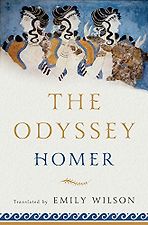Recommendations from our site
“This work is a kind of bookend, if you like, to Frege, who initiated a tradition which came to be known as analytic philosophy. In 1970, Saul Kripke, who is also an analytic philosopher, pointed out that despite all the progress made in following Frege’s emphasis on logic, language and meaning, there are certain limitations of that project that we must transcend. Kripke’s central message emerges from a discussion of three distinctions….What Kripke shows in Naming and Necessity is that…Contrary to what had been assumed, there are necessary truths knowable only by experience – including many important scientific truths – and there are contingent truths that can be known a priori. Moreover, this difference is not reducible to differences in linguistic meaning or convention. The reason this is important is that it falsified an assumption crucial to the self-conception of philosophy that had grown up in the first half of the 20th century – the assumption that philosophical truths are all analytic, necessary and a priori. Kripke’s shattering of this idea brought back something that had been missing from philosophy for a long time. It brought back the idea that things in the world have discoverable essences, which are properties not just physically required but metaphysically necessary for their existence.” Read more...
The best books on The Philosophy of Language
Scott Soames, Philosopher





